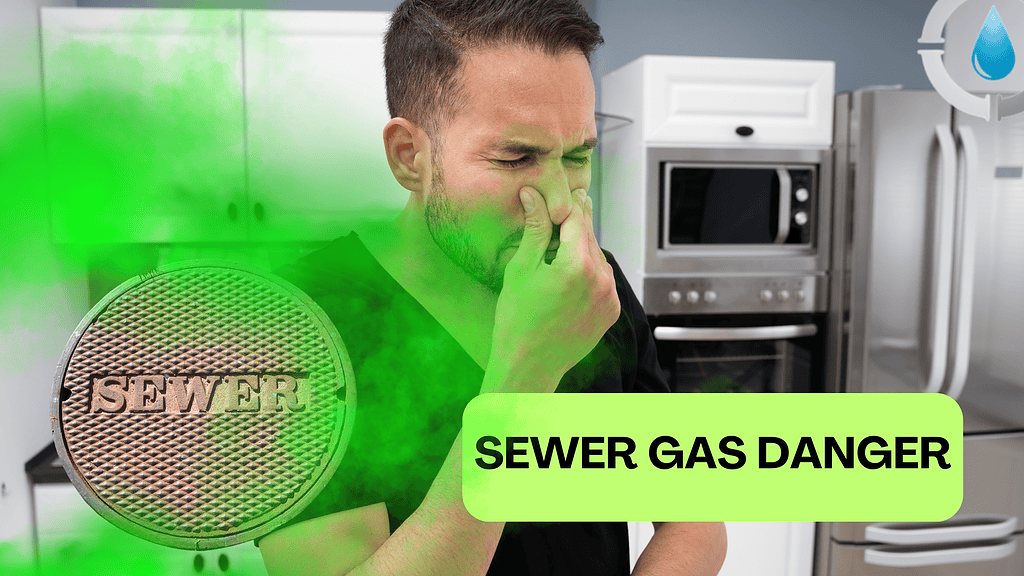
Sewer Gas Dangers: Protect Your Home with GPS Plumbing
The Hidden Dangers of Sewer Gas: What Every Homeowner Should Know
Sewer gas is a hazardous mixture of gases that can enter your home from your plumbing system, posing serious health and safety risks. While the unpleasant odor is often the first sign, the real dangers lie in the toxic and explosive components of sewer gas. Understanding these risks and how to prevent them is crucial for maintaining a safe and healthy home environment.
What is Sewer Gas?
Sewer gas is a combination of toxic and non-toxic gases produced by the decomposition of household waste in your plumbing system. The primary components include hydrogen sulfide, methane, ammonia, carbon dioxide, and sulfur dioxide. While low levels of these gases are usually present, problems occur when higher concentrations enter your home due to plumbing failures, improper venting, or maintenance neglect.
Health Risks Associated with Sewer Gas Exposure
Exposure to sewer gas can lead to various health issues, depending on the concentration and duration. Common symptoms include:
- Respiratory Problems: Inhaling sewer gas can irritate the respiratory tract, leading to symptoms such as coughing, shortness of breath, and bronchitis.
- Headaches and Dizziness: Hydrogen sulfide, a significant component of sewer gas, can cause headaches, dizziness, and nausea, particularly in poorly ventilated areas.
- Eye and Throat Irritation: Ammonia present in sewer gas can irritate the eyes, throat, and nasal passages, causing discomfort and potential health concerns.
- Fatigue and Memory Issues: Long-term exposure to even low levels of sewer gas may result in fatigue, poor concentration, and memory problems.
- Severe Toxicity: In high concentrations, hydrogen sulfide is highly toxic and can cause serious health problems, including loss of consciousness, respiratory failure, and even death.
- For more detailed information on how indoor pollutants, including sewer gas, can impact your health and safety, check out the EPA’s guide on indoor air quality.
Explosive and Fire Hazards of Sewer Gas
Methane, a highly flammable component of sewer gas, poses a significant fire and explosion risk in your home. Even small leaks can create a dangerous situation, especially if sewer gas accumulates in confined spaces such as basements or utility rooms. A spark from a pilot light or electrical appliance can ignite the gas, leading to potentially catastrophic consequences.
Common Causes of Sewer Gas Leaks
Sewer gas typically enters a home through:
- Dry Traps: Plumbing traps are designed to hold water, which acts as a barrier preventing gas from entering your home. Dry traps, often due to infrequent use, allow sewer gas to escape into living spaces.
- Cracked or Broken Pipes: Damaged pipes, especially in older homes, can be a direct source of sewer gas leaks, often due to wear and tear or poor maintenance.
- Improperly Installed Vents: Plumbing systems rely on vent pipes to regulate air pressure and prevent sewer gases from building up. Blocked or improperly installed vents can force gas into your home, violating plumbing codes and safety standards.
- Malfunctioning or Unsealed Drains: Unsealed or faulty drain seals in sinks, showers, or toilets can also be pathways for sewer gas to leak indoors, leading to indoor air quality issues.
Preventing Sewer Gas Exposure in Your Home
Ensuring your plumbing system is in good condition is the best defense against the dangers of sewer gas. Here’s how GPS Plumbing can help:
- Regular Inspections: Routine plumbing inspections by GPS Plumbing can identify potential problems like dry traps, cracked pipes, or venting issues before they become major concerns, ensuring compliance with Frisco plumbing codes.
- Proper Venting Solutions: We ensure your plumbing vents are correctly installed and unobstructed, allowing for proper air circulation and preventing gas buildup, protecting your family’s health and safety.
- Seal and Repair: Fixing broken seals, sealing drains, and repairing cracked pipes are essential to maintaining a safe home environment, preventing sewer gas leaks.
- Addressing Dry Traps: Regular use of all fixtures or adding water to seldom-used drains can keep traps wet and effective, a simple yet effective measure to prevent sewer gas entry.
What to Do If You Suspect a Sewer Gas Leak
If you notice the smell of rotten eggs or experience symptoms associated with sewer gas exposure, it’s important to act quickly:
- Ventilate: Open windows and doors to allow fresh air to circulate and disperse the gas.
- Avoid Flames or Sparks: Do not light matches, use electrical appliances, or create any sparks that could ignite methane, reducing the risk of fire or explosion.
- Contact a Licensed Plumber: Reach out to a licensed plumber like GPS Plumbing to assess and address the source of the leak promptly, ensuring your home meets all safety and plumbing codes.
Why Choose GPS Plumbing for Sewer Gas Issues?
At GPS Plumbing, we are experts in identifying and resolving sewer gas issues. Led by licensed and insured Master Plumber Steve, our team is equipped with the knowledge and tools to ensure your home remains safe from the dangers of sewer gas. From thorough inspections to expert repairs, we’re committed to protecting your home and health.
Contact GPS Plumbing at 469-777-0217 for professional plumbing services in Frisco and surrounding areas. Let us help you keep your home safe from sewer gas and other plumbing hazards, with the expertise to navigate Frisco's plumbing codes and ensure full compliance.

